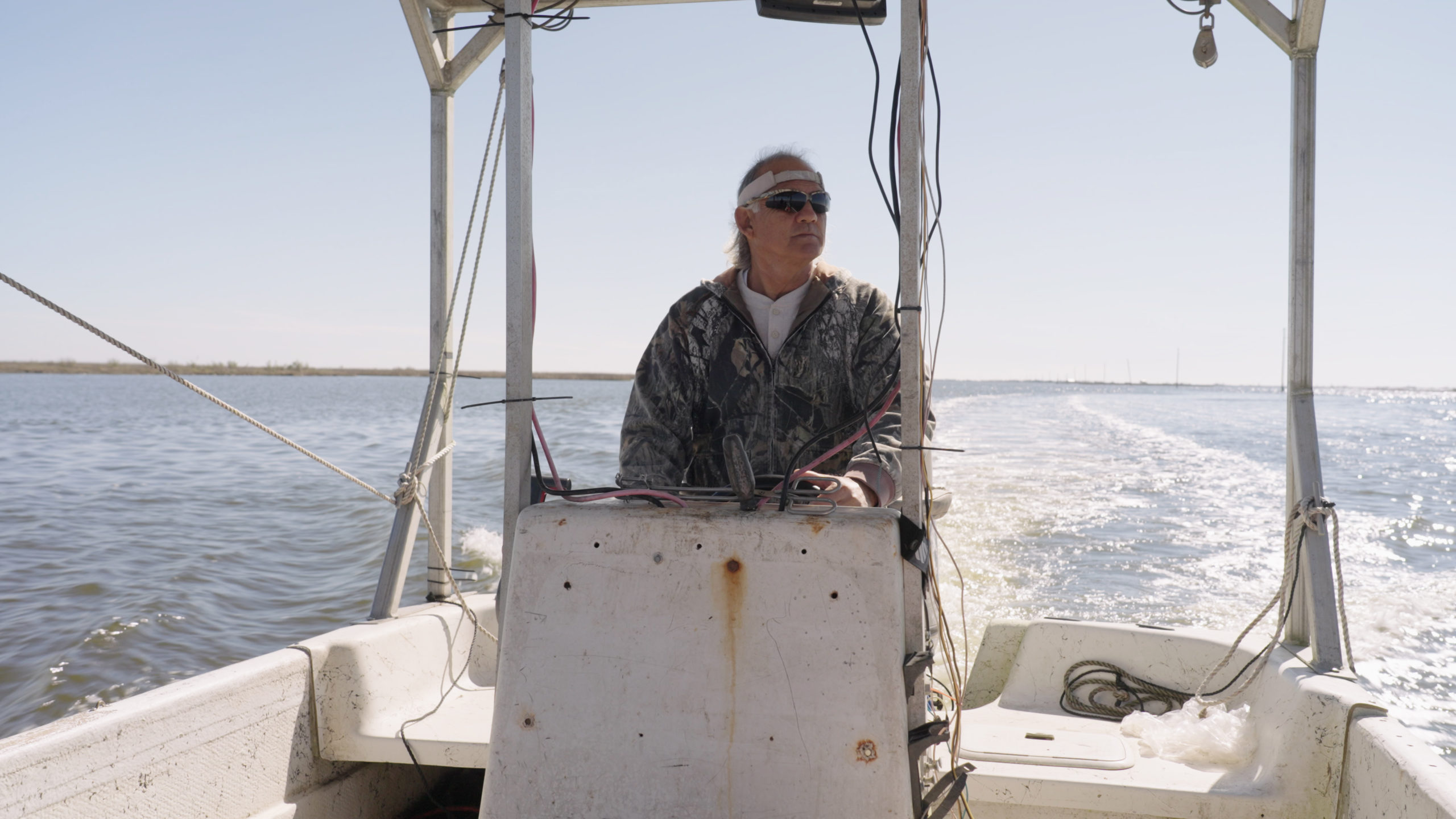Pointe-au-Chien Indian Tribe second chairman Donald Dardar’s ancestors once lived on land that no longer exists. Situated along the Louisiana bayou, the Indigenous community once stretched miles further to the south.
But the area is losing land––and fast––thanks to the destructive combination of industrial activity and climate change. For coastal Indigenous communities like Pointe-au-Chien, the change poses an existential threat––not only to their land, but also to their unique way of life.
Dardar, a lifelong resident of the small fishing community, started fishing with his father as a boy. Back then, shrimp and crab spawned in the grasslands near his family’s home; muskrats and otters, which Dardar and his family trapped for furs, roamed the surrounding forest.
Today, the shrimp and crab are harder to find and the trees have died, the result of saltwater intrusion. The catches are getting smaller, something experts attribute to warmer waters and loss of spawning grounds.
“It’s all water now,” Dardar said. “It never used to be like that when I was young.”
The Pointe-au-Chien Indigenous community is located 60 miles southwest of New Orleans. The tribe of about 800 people descend from Chitimacha, Biloxi, Acolapissa, and Atakapas Indians; many, like Dardar before he retired, earn a living from fishing.
Along the Mississippi Delta, communities are losing their homes and livelihoods to encroaching waters. The Mississippi delta is the fastest disappearing delta in the world, losing about a football field per hour, according to USGS data. Extreme storms fueled by climate change are only making matters worse. With less land to act as a buffer, homes and other structures are being hit harder.
Indigenous groups on the bayou like the Pointe-au-Chien worry that rising waters will also erase their history—and imperil their future as a tribe.
“Our community’s been changing for years because of land loss,” Dardar said. But nothing prepared him for Hurricane Ida.
Last August, the Category 4 storm struck the coast with 150-mph winds and a 12-foot storm surge, damaging most of the homes in Pointe-aux-Chênes. Dardar and his wife Theresa evacuated, returning a few days later.
“When we first got home, I just sat on my porch and [broke down] because of the devastation,” Theresa Dardar said. The Dardars’ home was spared—for now—but most of their neighbors were not. Statewide, the storm destroyed boats and docks in towns like Pointe-aux-Chênes whose local economies depend on the fishing industry.
Despite this, the Dardars and many of their neighbors are determined to rebuild.
“Everybody that’s here, even though they lost their homes, they still want to come home,” Theresa Dardar said. “This is where a lot of our ancestors are buried. We’re all connected to that.”
Now, the Dardars are storm-proofing their home and working with volunteers to protect their cemeteries and shoreline by building oysters reefs. Theresa Dardar said she wished the state would do more.
Even as residents of Pointe-aux-Chênes prepare for another hurricane season on the bayou, the Dardars are steadfast in their decision to stay. After all, Theresa Dardar said, there are wildfires in California and Colorado and tornadoes in Texas and Arkansas and beyond.
“Where would you have us go that there’s no natural disasters?” she said.
This article was made possible by a grant from the Open Society Foundations. Nexus Media News is an editorially independent, nonprofit news service covering climate change. Follow us @NexusMediaNews.
